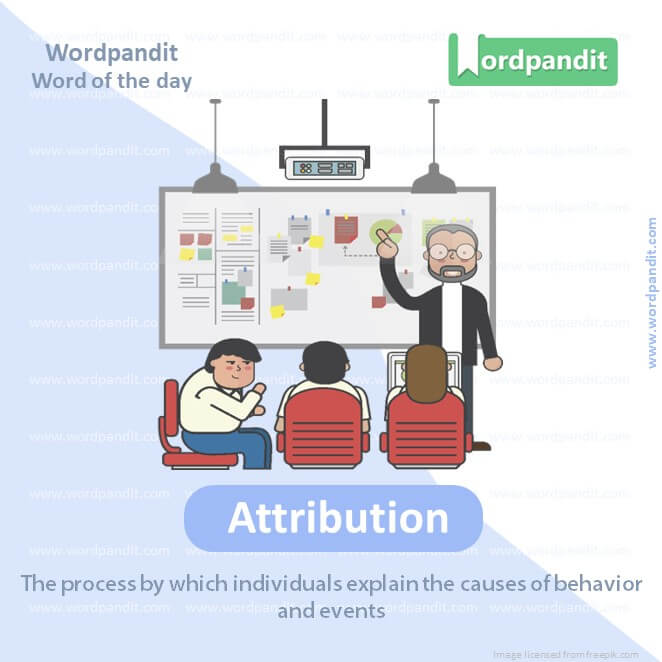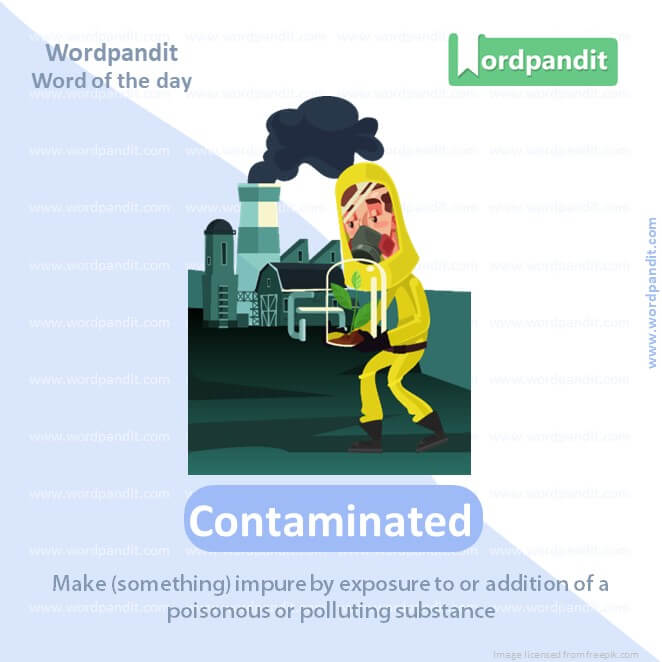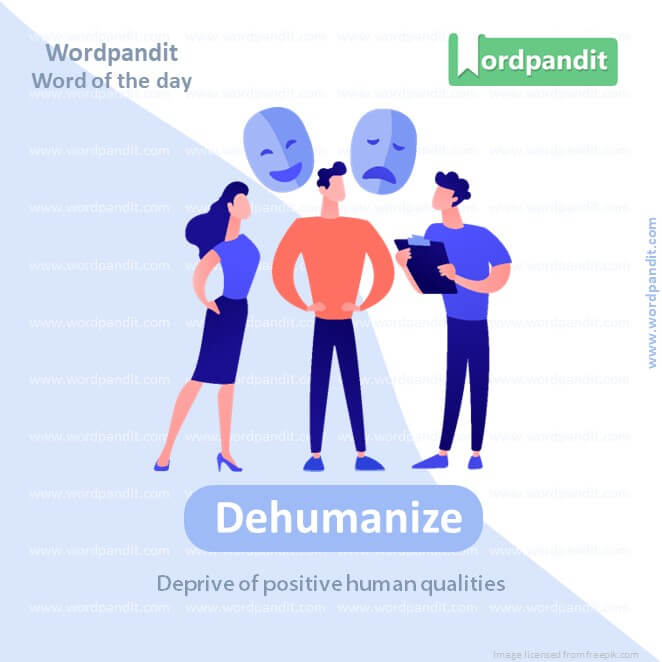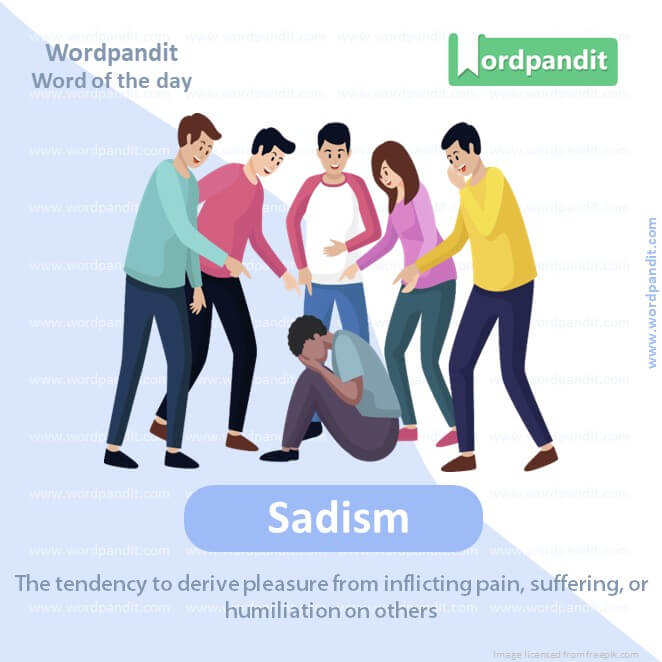Daily Vocabulary Words: List of Daily Used Words in Leading International Newspapers
Hi there. Welcome to this special section @ Wordpandit.
Our endeavour here is very simple: to highlight important daily vocabulary words, which you would come across in leading newspapers in the country. We have included the following newspapers in our selection:
• The New York Times
• The Washington Post
• Scientific American
• BBC
• The Guardian
• Psychology Today
• Wall Street Journal
• The Economist
We are putting in extensive work for developing your vocabulary. All you have got to do is be regular with this section and check out this post on a daily basis. This is your repository of words that are commonly used and essentially, we are posting a list of daily used words. Hence, this has significant practical application as it teaches you words that are used commonly in leading publications mentioned above.
Visit the website daily to learn words from leading international newspapers.

WORD-1: Attribution
CONTEXT: The attribution of the recent cyber attack to a known hacking group was a considerable breakthrough for the FBI. – The Washington Post
SOURCE: The Washington Post
EXPLANATORY PARAGRAPH: Imagine if you drew a lovely picture and your friend said, “Hey, that’s a great drawing by you!” Your friend just gave you credit or pointed out that you made that drawing. That act of saying who did something or where something came from is called “attribution.”
MEANING: The process by which individuals explain the causes of behavior and events (noun).
PRONUNCIATION: At-try-bew-shun
SYNONYMS: Credit, Acknowledgment, Ascription, Crediting, Recognition, Assignment, Referral
USAGE EXAMPLES:
1. The article lacked proper attribution of its sources.
2. He received attribution for his outstanding work.
3. All photos in the book have clear attributions.
4. Without proper attribution, it’s difficult to verify the information.

WORD-2: Contaminated
CONTEXT: Rural villages are living in fear after reports of contaminated water supply which could place hundreds of lives at risk. – The Guardian
SOURCE: The Guardian
EXPLANATORY PARAGRAPH: Imagine you have a clear glass of water, but then a drop of paint falls into it. Now the water is no longer clear and clean; it has something unwanted in it. That means the water is “contaminated.”
MEANING: Make (something) impure by exposure to or addition of a poisonous or polluting substance (verb).
PRONUNCIATION: Con-tam-in-ated
SYNONYMS: Polluted, Tainted, Infected, Adulterated, Dirtied, Fouled, Poisoned
USAGE EXAMPLES:
1. The river was contaminated by industrial waste.
2. We cannot drink this water; it’s contaminated.
3. The food got contaminated when left outside overnight.
4. Always wash your hands to avoid contaminated surfaces.

WORD-3: Dehumanize
CONTEXT: Human rights organizations all over the world have condemned the dehumanizing language used against immigrants during the recent political debate. – Al Jazeera
SOURCE: Al Jazeera
EXPLANATORY PARAGRAPH: Imagine if someone treated you like you were just an object and not a person with feelings. That means they’re trying to make you feel less human. This act is called “dehumanize.”
MEANING: Deprive of positive human qualities (verb).
PRONUNCIATION: De-hew-man-ize
SYNONYMS: Belittle, Degraded, Demean, Depersonalize, Objectify, Devalue, Disrespect
USAGE EXAMPLES:
1. Wars often dehumanize the soldiers involved.
2. The movie portrayed the aliens in a way that dehumanized them.
3. It’s wrong to dehumanize people based on their race.
4. The prisoners were dehumanized by their captors.

WORD-4: Sadism
CONTEXT: The psychologist’s new book explores the roots and impacts of sadism in modern society, drawing on case studies and historical examples. – The New York Times
SOURCE: The New York Times
EXPLANATORY PARAGRAPH: Sadism is when someone enjoys seeing others in pain or suffering. It’s like if someone laughs when they see someone else getting hurt; that’s not kind or good.
MEANING: The tendency to derive pleasure from inflicting pain, suffering, or humiliation on others (noun).
PRONUNCIATION: Say-dizm
SYNONYMS: Cruelty, Brutality, Barbarity, Viciousness, Malice, Inhumanity
USAGE EXAMPLES:
1. The villain in the movie showed extreme sadism.
2. His sadism was evident in the way he treated animals.
3. The dictator’s sadism was feared by all.
4. Sadism is considered a negative and harmful trait.

WORD-5: Stigma
CONTEXT: The stigma around mental health is slowly being broken down, with more people seeking help and openly sharing about their experiences. – BBC
SOURCE: BBC
EXPLANATORY PARAGRAPH: Imagine if you had a big, colorful sticker on your shirt, and people treated you differently because of it, even if it wasn’t a bad thing. A “stigma” is like that invisible sticker that makes people judge or treat someone unfairly.
MEANING: A mark of disgrace associated with a particular circumstance, quality, or person (noun).
PRONUNCIATION: Stig-ma
SYNONYMS: Disgrace, Shame, Dishonor, Taint, Blot, Brand, Scandal
USAGE EXAMPLES:
1. There’s a stigma attached to failing in school.
2. Mental illness shouldn’t carry a stigma.
3. The stigma of divorce has lessened over the years.
4. She felt the stigma of being an outsider.
WORD-6: Patriarchy
CONTEXT: Feminists are still battling against centuries-old systems of patriarchy that persist in many cultures around the world. – The Economist
SOURCE: The Economist
EXPLANATORY PARAGRAPH: In many stories, the king or the dad makes all the big decisions for everyone else. When only men or dads are in charge and make all the rules, we call that system “patriarchy.”
MEANING: A system where men have more power and control than women, especially within families and societies (noun).
PRONUNCIATION: Pay-tree-ark-kee
SYNONYMS: Male dominance, Androcentrism, Father-rule, Male supremacy, Masculinism, Man’s world
USAGE EXAMPLES:
1. Many societies have moved away from a strict patriarchy.
2. She challenged the ideas of patriarchy in her writings.
3. The novel explores themes of patriarchy and power.
4. Historically, patriarchy has dominated many cultures.
WORD-7: Asylum
CONTEXT: The number of refugees seeking asylum in Europe has seen a sharp increase in response to ongoing conflicts in the Middle East. – Al Jazeera
SOURCE: Al Jazeera
EXPLANATORY PARAGRAPH: Imagine if you were in a place that was not safe for you, and you needed a safe place to go to. “Asylum” is like a protective house where people can go when they need safety.
MEANING: A place of protection and safety, especially for people escaping danger or persecution (noun).
PRONUNCIATION: Uh-sigh-lum
SYNONYMS: Sanctuary, Refuge, Haven, Safe haven, Shelter, Protection, Safety
USAGE EXAMPLES:
1. Many refugees seek asylum in other countries.
2. He was granted asylum after fleeing his homeland.
3. The country has a long history of providing asylum to those in need.
4. The old building was once an asylum for the mentally ill.
WORD-8: Foster
CONTEXT: A heartwarming story from the Washington Post today reported on a couple who have chosen to foster not just one, but three, siblings to keep them together. – The Washington Post
SOURCE: The Washington Post
EXPLANATORY PARAGRAPH: Sometimes, children need a temporary home because their own home isn’t safe or their parents can’t take care of them. A family that gives them a home for a while is called a “foster” family, and they “foster” or care for the child.
MEANING: To take care of or bring up someone else’s child for a period of time (verb); providing temporary care or upbringing (adjective).
PRONUNCIATION: Faw-ster
SYNONYMS: Nurture, Raise, Cultivate, Encourage, Promote, Further, Support
USAGE EXAMPLES:
1. She decided to foster a child in need.
2. The program fosters a love of reading in children.
3. He was in foster care for several years.
4. The teacher fostered a sense of community in the classroom.
WORD-9: Cringe
CONTEXT: Viewers cringed at the awkward dialogue in the new blockbuster, leaving critics to question the hiring of the scriptwriter. – BBC
SOURCE: BBC
EXPLANATORY PARAGRAPH: Imagine if someone told an embarrassing story about you, and you felt a bit uncomfortable and wanted to hide. That feeling and the way you might scrunch up your face is called a “cringe.”
MEANING: To feel very embarrassed or uncomfortable; to shrink back in fear or disgust (verb).
PRONUNCIATION: Krinj
SYNONYMS: Flinch, Recoil, Shrink, Wince, Shudder, Squirm, Blench
USAGE EXAMPLES:
1. I cringe every time I think about that awkward moment.
2. She made a joke, but everyone just cringed.
3. The horror movie made me cringe in my seat.
4. He cringed at the thought of eating the strange food.
WORD-10: Ineptitude
CONTEXT: Questions are being raised around the ineptitude of the local council, following the alarming failure of a new housing project. – The Guardian
SOURCE: The Guardian
EXPLANATORY PARAGRAPH: Imagine if someone tried to paint a picture, but instead of a beautiful painting, they just made a big mess with paint everywhere. That means they didn’t do a good job or weren’t skilled at it. This lack of skill or ability is called “ineptitude.”
MEANING: Lack of skill or ability to do something correctly (noun).
PRONUNCIATION: In-ept-i-tood
SYNONYMS: Incompetence, Incapability, Inefficiency, Unskillfulness, Clumsiness, Awkwardness, Bungling
USAGE EXAMPLES:
1. The project failed because of the team’s ineptitude.
2. His ineptitude at cooking resulted in a burnt dinner.
3. The company suffered from managerial ineptitude.
4. Despite his enthusiasm, his ineptitude was evident in the results.
Vocabulary Words with Meaning, Synonyms and Antonyms PDF
The voyage to language mastery often involves decoding the ‘vocabulary words with meaning, synonyms and antonyms PDF’. This valuable resource is a treasure chest of words, offering definitions, similar phrases, and contrasting expressions all in one place. Yet, recognizing the full potential of ‘vocabulary words with meaning, synonyms, and antonyms PDF’ entails more than just glossing over the words, it demands active and strategic engagement.
To uncover the richness of ‘vocabulary words with meaning, synonyms and antonyms PDF’, focus on understanding the context of each word, along with its synonyms and antonyms. Group words under themes to create word maps, linking synonyms and contrasting antonyms, for a better grasp of the material.
When delving into a ‘vocabulary words with meaning, synonyms and antonyms PDF’, use annotation tools for an interactive study experience. Make personal notes about each word and how you connect with it. This personalized touch aids in memorization and enhances recall.
To cement the learning from ‘vocabulary words with meaning, synonyms and antonyms PDF’, regular revision is pivotal. Spaced repetition, a learning technique where intervals between each review are gradually increased, can significantly enhance long-term memory retention.
The most crucial aspect, however, is practical application. The ‘vocabulary words with meaning, synonyms and antonyms PDF’ should act as a springboard for real-world application. Incorporating learnt words, along with their synonyms and antonyms, in conversations or digital interactions, reinforces understanding and boosts fluency.
In conclusion, navigating the ‘vocabulary words with meaning, synonyms and antonyms PDF’ is a cerebral adventure. A blend of contextual learning, annotation, regular revision, and practical application makes the journey a rewarding one. Grasping ‘vocabulary words with meaning, synonyms and antonyms PDF’ not only enriches your language skills but also adds vibrancy to your linguistic expressions.









